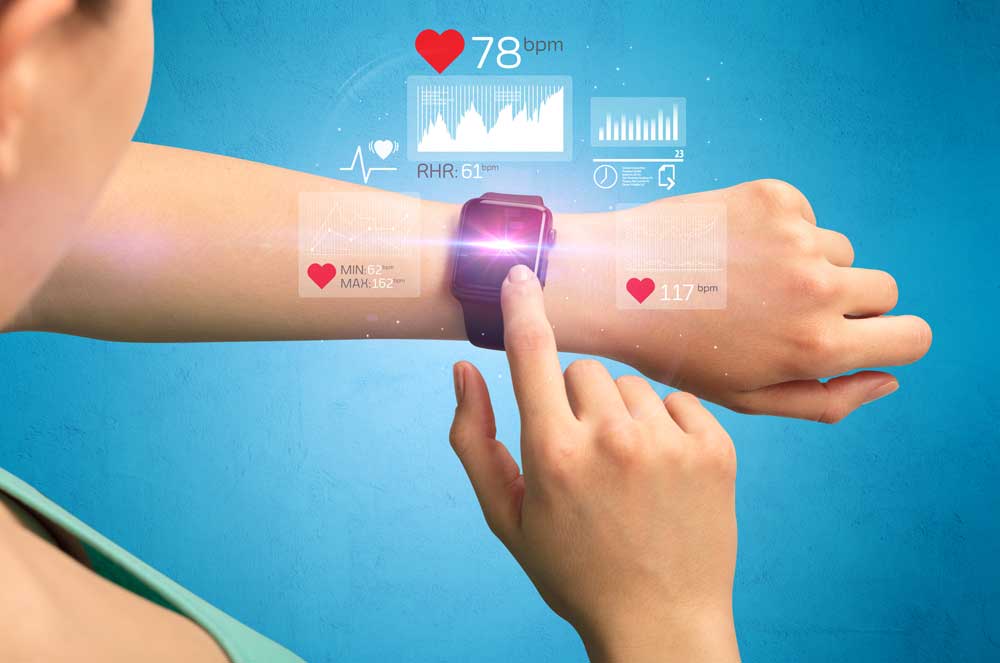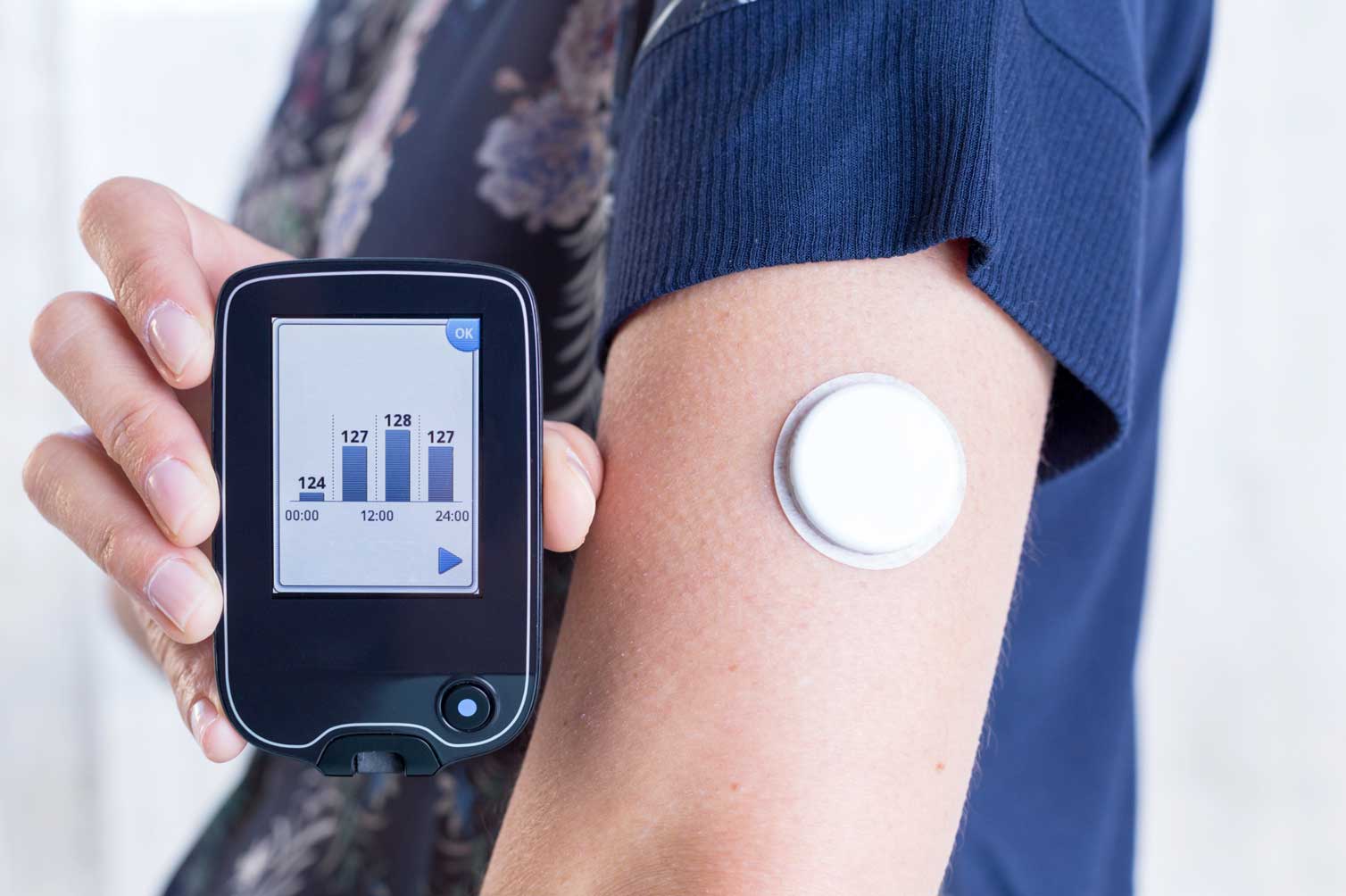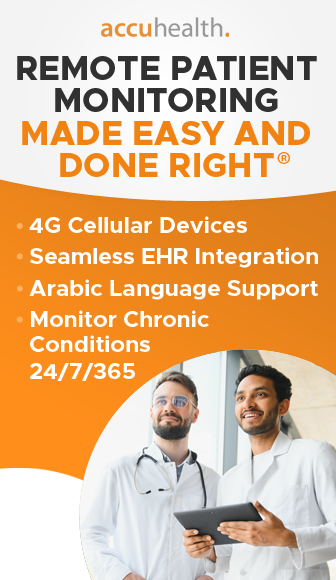
Wearable devices are an innovative way to monitor vital body signs, which has led to promoting the concept of proactive healthcare. Monitoring daily activities and tracking blood pressure, blood sugar, pulse, and weight, are factors that have contributed to improving individual healthcare, all thanks to the convergence between humans and technology.
Healthcare companies are actively conducting experiments to develop new solutions and expand the horizons of these devices’ sustainable application.
On another note, healthcare providers have in turn benefited from these devices to monitor their patients, especially those with chronic diseases, through continuous access to their personal data, thus allowing for a higher level of control over their patients’ lifestyle.
Wearable devices, such as health monitors, fitness trackers, and disease prevention devices, are becoming today more important in healthcare, disease management, and prevention of complications. Several patients are increasingly using wearable devices to help them collect essential data and better manage their health.
Health Benefits of Wearable Devices
Proactive Healthcare
The technology of wearable devices has contributed to enhancing the concept of a proactive approach, where vital body signs can be monitored and any health issue or problem in these signs can be identified immediately before it begins to impact the body, thus instantly communicating with the doctor to take action in the early stages. Perhaps the main beneficiaries of these devices are people with chronic diseases. For example, diabetic patients using continuous glucose monitors can track their blood glucose levels moment by moment and adjust them by changing their diet or getting an insulin injection. In cases of extremely high or low levels, doctors should be informed in order to properly deal with the situation. Instead of managing the disease at an advanced stage, it is now possible to prevent the disease’s development and treat it in its early stages. This has strengthened the concept of early detection and its role in enhancing the effectiveness of treatments.
Maintaining Health
Monitoring vital body signs and instantaneously tracking calories lost in physical activities motivate people to control and maintain vital signs and weight within the normal ranges. Fitness trackers that monitor activity levels, heart rate, and sleep quality, help prompt people to improve these metrics by exercising more, getting more sleep, and engaging in healthier behaviors.
Protecting the Most Vulnerable Patients
Wearable devices help monitor at-risk patients, such as the elderly, people with special needs, and those with critical cases that require continuous monitoring. In the event that they go out or may be exposed to danger at home, these devices can notify healthcare providers or family members to ensure speedy emergency responses. Patients can use wearable devices when they return home after surgery or an operation to keep doctors informed on their recovery progress and ensure no complications occur.
Monitoring Medical Conditions
Wearable and mobile devices help doctors track their patients and measure vital signs in real time such as heart rate, ECG, blood pressure, body temperature, etc. These devices can transmit necessary patient data to doctors for further examination.
Thus, patients get timely treatment once their vital signs are out of range, such as getting insulin pumps or automated insulin delivery (AID) devices. With the help of these devices, doctors can better adjust patients’ treatments and monitor their conditions.
The Best Wearable Devices in Healthcare
Pacemakers
Pacemakers have revolutionized heart care, especially after recent developments in this field that allow patients to continue living their lives normally without any inconvenience caused by the use of this device as it can be implanted under the skin to be unapparent.
This medical device helps regulate the heartbeat. Having a pacemaker implanted is a safe procedure if it is done by a specialized doctor with periodic follow-up of the case.
Continuous Glucose Monitors
Continuous glucose monitors constitute an essential part in the life of diabetic people, as they can directly self-monitor their blood sugar rates, and thus prevent irregularities, adjust doses, and communicate with the attending physician. All of these things help patients manage their disease and avoid the complications that can happen as a result of irregular diabetes.
These devices record continuous changes in the blood sugar rate by using a chip that penetrates the skin in specific areas of the body and acts as a glucose sensor throughout the day and night. The sensor sends the readings to a data display device.
ECG Monitors
ECG monitors are one of the latest wearable electronic devices, characterized by their ability to measure the heart’s electrical activity and rhythm. Some have built-in screens that allow patients to view their heart rhythm. The most important thing about these devices is the ability to connect them to a mobile phone or computer application in order to record, display, and store ECG readings and share them with the attending physician. In other words, the heart can be monitored, and the ECG can be performed in real time, both of which help the physician to better assess and treat the condition.
Fitness Trackers
Fitness trackers are among the simplest and most user-friendly technology devices. They are equipped with a sensor system to measure physical activity, heart rate, oxygen level, blood pressure, and more.
Everyone who wears this device can track the health and fitness signs in real time, which are accessible through smartphone applications.
Health Smartwatches
Smartwatches allow people to perform tasks that they usually do on a mobile phone, such as reading notifications, sending simple messages, and making phone calls.
Moreover, smartwatches can send notifications if people need to do more exercises and exert more effort, in addition to effectively monitoring the heart rate.
Biosensors
Biosensors are portable electronic devices that enable real-time monitoring of various vital signs, including blood pressure, heart rate, body temperature, respiratory rate, and activity levels.
















